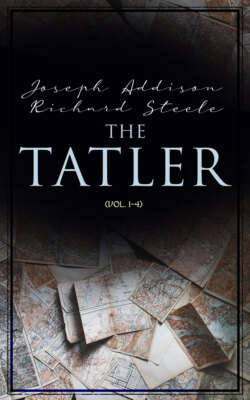Читать книгу The Tatler (Vol. 1-4) - Joseph Addison - Страница 147
St. James's Coffee-house, July 6.
ОглавлениеThe approaches before Tournay have been carried on with great success; and our advices from the camp before that place of the 11th instant say, that they had already made a lodgment on the glacis. Two hundred boats were come up the Scheldt with a heavy artillery and ammunition, which would be employed in dismounting the enemy's defences, and raised on the batteries the 15th. A great body of miners are summoned to the camp to countermine the works of the enemy. We are convinced of the weakness of the garrison, by a certain account, that they called a council of war, to consult whether it was not advisable to march into the citadel, and leave the town defenceless. We are assured, that when the Confederate army was advancing towards the camp of Marshal Villars, that general despatched a courier to his master with a letter, giving an account of their approach, which concluded with the following words: "The day begins to break, and your Majesty's army is already in order of battle. Before noon, I hope to have the honour of congratulating your Majesty on the success of a great action; and you shall be very well satisfied with the Marshal Villars."
It is to be noted, that when any part of this paper appears dull, there is a design in it.382
377. See note to No. 36.
378. A coffee-house in Change Alley. See Spectator, No. 1, and Mrs. Centlivre's "Bold Stroke for a Wife."
379. See No. 7.
380. Sir William Whitlocke, Knt., Member for Oxon, Bencher of the Middle Temple. He is the learned knight mentioned in No. 43 (Percy). This is confirmed by the MS. annotator mentioned in a note to No. 4. Nichols explains that Whitlocke is called Will Shoestring, for his singularity in using shoe-strings, so long after the era of shoe-buckles, which commenced in the reign of Charles II., although ordinary people, and such as affected plainness in their garb, wore strings in their shoes after that time.
381. "Combing the peruke, at the time when men of fashion wore large wigs, was even at public places an act of gallantry. The combs, for this purpose, were of a very large size, of ivory or tortoise-shell, curiously chased and ornamented, and were carried in the pocket as constantly as the snuff-box. At Court, on the Mall, and in the boxes, gentlemen conversed and combed their perukes "(Sir John Hawkins' "Hist, of Music," vol. iv. p. 447, note). Cf. Dryden's prologue to "Almanzor and Almahide":—
"But as when vizard mask appears in pit,
Straight every man who thinks himself a wit,
Perks up; and managing his comb with grace,
With his white wig sets off his nut-brown face."
And "The Fortune Hunters," act i. sc. 2 (1689): "He looked, indeed, and sighed, and set his cravat-string, and sighed again, and combed his periwig: sighed a third time, and then took snuff, I guess to show the whiteness of his hand." See, too, Wycherley's "Love in a Wood," act iii. sc. 1:—
"DAPPERWIT. Let me prune and flounce my perruque a little for her; there's ne'er a young fellow in the town but will do as much for a mere stranger in the play-house.
"RANGER. A wit's wig has the privilege of being uncombed in the very play-house, or in the presence—
"DAPPERWIT. But not in the presence of his mistress; 'tis a greater neglect of her than himself; pray lend me your comb. … She comes, she comes; pray, your comb. (Snatches RANGER'S comb.)"
382. "Mrs. Distaff hath received the Dialogue dated Monday evening, which she has sent forward to Mr. Bickerstaff at Maidenhead: and in the meantime gives her service to the parties" (folio).
